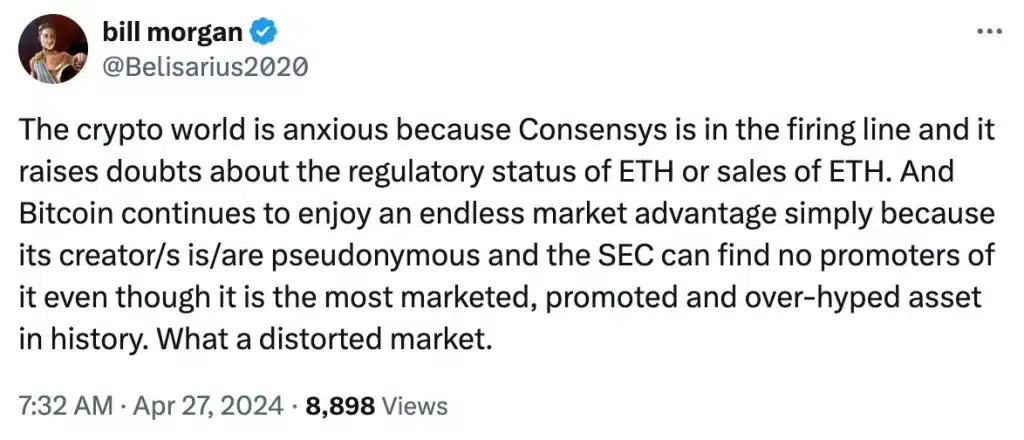Ethereum & Consensys vs SEC – An ‘unlawful power grab’ or a ‘cover-up?’

- Consensys sued the SEC in Texas over Ether’s classification
- Org has challenged the SEC’s allegations, while advocating for fairness and clarity
With the debate around Ethereum’s [ETH] possible classification as a security becoming long and tiresome, Consensys, a blockchain software giant, recently made news. It did so by taking a bold step and initiating legal action against the United States’s SEC and its five commissioners.
Laura Brookover’s insights
Remarking on the same, Laura Brookover, Senior Counsel & Head of Litigation and Investigations at Consensys, on a recent episode of “Unchained,” claimed,
“I never expected to one day be suing the SEC, but here we are. We’ve sued the SEC in our home state of Texas to defend Ether and the Ethereum network from Chair Gensler’s unlawful power grab.”
She added,
“It’s really time they saw the light of day because these are important critical issues for our industry.”
According to the exec, the SEC is not only targeting Consensys’s product – Metamask, but also their finance team. They are doing so by asking about the sales of Ether and Ethereum developers.
She went on to say,
“If Chair Gensler gets away with misclassifying Ether as a security it’s really catastrophic in the United States.”
Consensys’s defense mechanism
While highlighting the fundamental differences between proof of work and proof of stake mechanisms, Consensys has consistently refuted the SEC’s potential theory that staking turns Ether into a security. In fact, Brookover went on to challenge the SEC’s differentiation between Bitcoin [BTC] and Ethereum ecosystems, claiming,
“There’s really no reason to treat them differently, it’s arbitrary. So, I think that’s one of the things we’ll probably point to, as showing that the SEC really has no basis here.”
That’s not how everyone feels though. For instance, according to crypto-lawyer Bill Morgan,
On the contrary, Steven Nerayoff, a former Ethereum advisor, believes that Ethereum has functioned as a centralized entity since its ICO and thus, warrants classification as a security. He added,
“This move is to distract people from the truth and just another cover-up.”
The Wells Notice
While discussing the SEC’s Wells notice targeting Consensys for allegedly operating as an unregistered securities broker, Brookover highlighted Consensys’s metamask swaps and staking features. In contesting this accusation, she argued that Metamask serves as a communication tool for liquid staking protocols, rather than engaging in securities distribution.
Ergo, Brookover is optimistic that a successful outcome in the lawsuit would provide much-needed clarity to the regulatory uncertainty surrounding cryptocurrencies.
“If we’re successful, there’s going to be some clarity on how it applies to the digital assets, that would be beneficial for the industry at large.”







